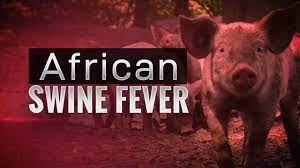

A string of recent outbreaks of African swine fever (ASF) overseas are sparking new prevention programs in Canada.
In the last six weeks, new ASF outbreaks were confirmed Bhutan, India, Nepal, the Philippines, Malaysia, South Korea and Thailand, according to the World Organisation for Animal Health (WOAH). All of the listed nations began reporting ASF outbreaks on hog farms earlier this year, resulting in biosecurity measures being put into place to prevent further spread. The global agency also reported that an ASF infection in a wild boar was confirmed in late November in the Czech Republic, the first new ASF confirmation in that country in four years. The European Commission also reports that the total of wild boar to test positive for ASF in Germany, Latvia, Hungary, Poland, Romania and Slovakia since the beginning of the year involved 6,800 wild animals.
Meanwhile, Canada’s African Swine Fever Industry Preparedness Program (ASFIPP) is providing C$23.4 million to cover biosecurity assessments and improvements, wild pig management and other related research projects over the next year. The ASFIPP effort is scheduled to accept applications for the funding grants through Nov. 20, 2023 and the funds are expected to be distributed over two years, according to the program website. So far, ASF has not been detected in North America, but would devastate the pork industries of both nations should the virus that causes ASF spread beyond the Caribbean.




